SUMMARY
This is AI generated summarization, which may have errors. For context, always refer to the full article.
- Greece may stay in eurozone as pro-austerity parties win polls
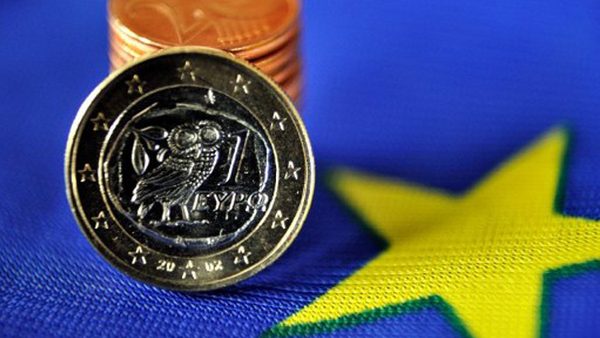
The world watched one of the most anticipated elections in years: the Greek elections on Sunday, June 18. On a momentous night in European politics, two parties supporting EU- and IMF-led bailout and austerity measures clinched enough votes to form a government in tight polls, which also played as a decision point on whether Greece would become the first among the 17-member European Union to be forced out of the single currency regime. A wave of anti-austerity sentiment has plagued the eurozone, especially debt-hit Greece, stirring fears that if Greece leaves the bloc and not respect its international debt commitments, a deeper and immediate crisis in the region awaits. Despite the reprieve, analysts warned that concerns about the embattled eurozone or Greece’s economic future remain.
Read more on Rappler: election results
The Greek economy in facts and figures
Check the coverage of The Guardian and BBC - Markets soar on Greek election result
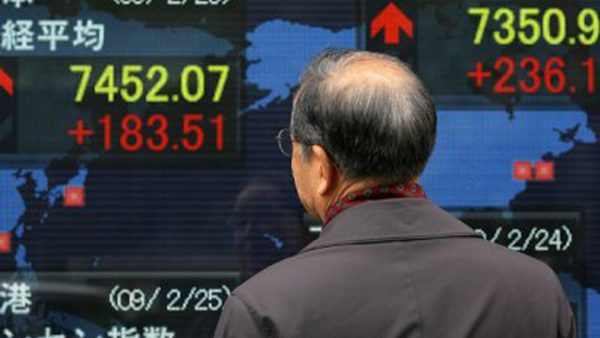
The morning after majority of Greeks voted in favor of two political parties that support moves to keep this nation among the 17-member European Union, the euro soared in early Asian trade on Monday, June 18. The dollar has climbed against the Japanese currency to 79.09 yen from 78.67 yen. The Sunday vote, which became a proxy on whether cash-strapped Greece will honor its debt commitments and heed the austerity and bailout measures peddled by the EU and International Monetary Fund (IMF), gave investors and market watchers a respite. Noteworthy, too, was the Washington-based lender’s statement that it will set about a renegotiation of Greece’s 130-billion-euro bailout program. It’s a long way to go for debt-hit Greece and troubled euro, but markets cheered the results. - Hollande’s grip of French politics gets stronger

The grip of President François Hollande on French politics just got tighter after the party he leads, the Socialists, secured a comfortable absolute parliamentary majority at the polls on Sunday, June 18. Hollande, who defeated right-winger Nicolas Sarkozy in a May presidential election, had urged voters to give him the MPs he needs to steer France through the eurozone crisis, rising unemployment and a faltering economy through his tax-and-spend agenda. Beyond election promises of job creation and tax hikes, the government will have to pass unpopular measures to bring the deficit below 3% of GDP, with no sign of the eurozone’s debt crisis improving. Meantime, media spotlight was also focused on Segolene Royal, Hollande’s former partner and mother of their 4 children, who conceded defeat in her battle after a dissident Socialist candidate refused to stand down.
Read more on Rappler. - Who will be the next heir at world’s top oil exporter?

On Sunday, June 18, Saudi Arabia buried Crown Prince Nayef, the former heir to the throne of 89-year-old King Abdullah. A new successor will soon be named as the world’s top oil exporter faces a challenging time at home and abroad. Saudi succession issue after Crown Prince Nayef’s death adds to state’s problems such as Shia unrest and youth joblessness. Nayef’s death, just 8 months after he replaced his late brother Sultan as crown prince, raises the issue of succession because of the advanced age of the first line of apparent heirs, in a time of turmoil rocking the Arab world. Eyed as a possible candidate is Prince Salman, 76, another son of Saudi Arabia’s founder Abdul-aziz Ibn Saud.
Read more on Rappler. - Muslim Brotherhood claims victory in Egypt polls

The Muslim Brotherhood claimed victory in historic presidential polls on Monday, June 18, hours after the ruling military council issued a constitutional document claiming sweeping power. The official results are not expected until June 21, but the party has already made the announcement, which is widely seen as a culmination of a long political struggle for the once-outlawed Muslim Brotherhood. The race between Ahmed Shafiq, who was ousted President Hosni Mubarak’s last prime minister, and Mohammed Mursi, a conservative Islamist, has polarized the nation, as the military generals prepare to define the next president’s authorities in an interim constitutional declaration, which would likely assign legislation and control of the budget to a council of generals, stressing the prospects that the ruling military will still hold most power even after their nominal handover of authority to civilians by July 1. The new president will inherit a struggling economy, deteriorating security and the challenge of uniting a nation divided by the 18-day uprising that toppled Mubarak in February 2011.
Read more on Rappler. - India’s rich struggles with Gupta’s US fate

Rajat Gupta lived the ultimate Indian dream: a successful reputation with an ability to open doors at the highest level of global business. The orphan-turned-success story has made him a role model in India where many aspire to follow his meritocratic career path, which includes a Harvard education and the top posts at McKinsey & Co and Goldman Sachs. During Gupta’s trial in the US where he was found guilty on several counts of passing on secret business information relating to trades in the stock of Goldman Sachs to Raj Rajaratnam, the head of Galleon, a hedge fund, many leading Indian industrialists backed a public campaign supporting Gupta, including Mukesh Ambani, the billionaire head of Reliance Industries and Adi Godrej, chairman of the Godrej Group. But there was also muted criticism about the greed and avarice involved in the deed. Book author and former P&G India CEO Gurcharan Das, said that Gupta, while associating with billionaires, aspired to become one of them. “It’s the classic problem of status anxiety…he was associating with CEOs and billionaires earning very large sums. His job was to advise people with a lot of capital, not to be an owner of capital. He got new ambitions,” Das told Financial Times.
Read more on CNN
and on Rappler - Will sustainable development issues rise above economic crises?
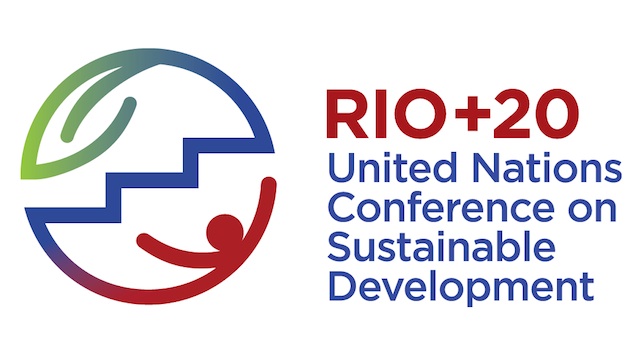
The Rio+20 conference kicks off in Rio de Janeiro on Monday, June 18, after 20 years since the Earth Summit took place in the same Brazilian city. The overarching goal is to establish a new and equitable global partnership to protect the environment amid unsustainable growth targets. Key aspect of the agenda is the introduction of a new index–the Inclusive Wealth index–meant to be an alternative to the traditional Gross Domestic Product (GDP) and look at 4 baskets of assets–including use of natural resources, level of education and health–in the search for a wider picture of fair and sustainable growth. To fund this, conference supporters look to governments that has cut defense spending and encourage them to open up their wallets for the environment and the world’s poor. But the absence of key leaders including US President Barack Obama, British Prime Minister David Cameron and German Chancellor Angela Merkel — will be conspicuous in Rio for their absence. European leaders are still digesting the outcome of the elections in Greece, which posed the most severe challenge to the EU and the euro.Read more about the Rio+20 Summit on Rappler.
and about the Inclusive Wealth index
and how the Philippines is participating.
- List of aspirants for Supreme Court top post finalized July 2
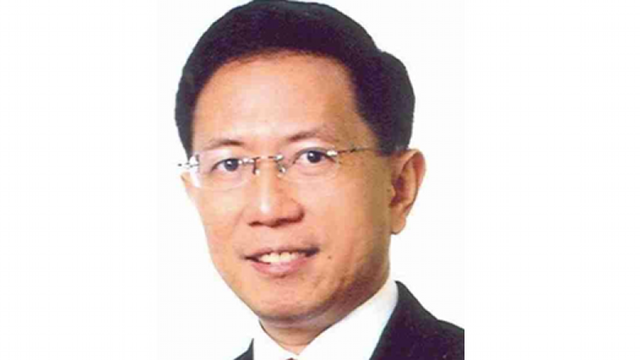
The deadline for application and nomination for the replacement of ousted Supreme Court Chief Justice Renato Corona has been moved to July 2 instead of the original deadline this Monday, June 18. The Judicial and Bar Council (JBC), which vets the candidates,, is set to convene for the selection process. The JBC has a list of over two dozen aspirants, and will soon publish the names of the final nominees as well as the dates for their oral interview. Automatically nominated are Acting Chief Justice Antonio Carpio and 4 other senior justices, as well as Maria Lourdes Sereno, the first appointee of President Aquino to the High Tribunal. The President had earlier hinted that he might pick an outsider for the post. Former energy secretary Raphael ‘Popo’ Lotilla, on the other hand, declined his nomination, saying the tradition of appointing the leader of the high tribunal based on seniority should be restored in the Supreme Court.
Read more on Rappler. - China will be world’s biggest source of educated workers
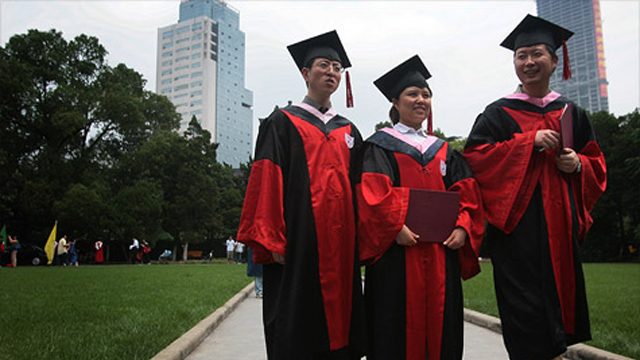
China is rising fast as the world’s largest source of college-educated workers. A study by the McKinsey Global Institute showed that China will produce 30% of the world’s new supply of educated labor by 2030. China is predicted to overtake the United States, which is estimated to account for only 5%, or even the combined supply from advanced countries like Japan and Europe, accounting for just 14%. The study basically stressed the need for more highly educated workers since it predicts that employers around the world will be faced with a shortage of 38 million college-educated workers and a surplus of 90 million unskilled workers in 2030.
Read more on CNN - Out of the crowd and into a womb chair

Crowded commutes, jam-packed offices, and endless social media updates tend to make switching off an impossible endeavor in today’s interconnected and densely populated cities. Enter the womb chair, a wool pod felt with cushions stuffed with recycled wool fibers that’s supposed to replicate the comfort of being in your mother’s stomach, according to its inventor Freyja Sewell. Dubbed “Hush,” the dual-purpose chair provides a chance to hibernate in the round shaped solo unit or transform the pod into a cozy chair. It is not yet available for sale but the Hush is already making waves. Recently, it was selected as among “green heroes” by an environmentally conscious design group.
Read more on Business Insider.
Add a comment
How does this make you feel?
There are no comments yet. Add your comment to start the conversation.